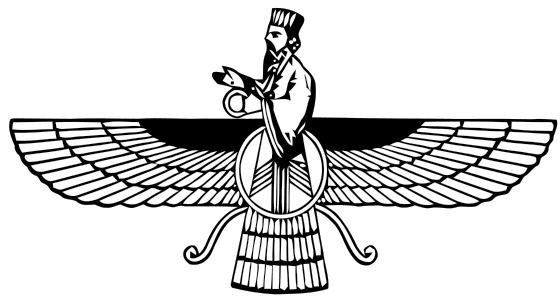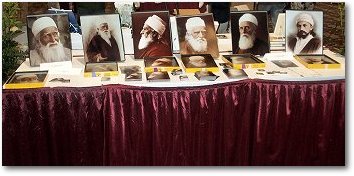“… to be followed by its establishment and recognition as a State religion, which in turn must give way to its assumption of the rights and prerogatives associated with the Bahá’í state, functioning in the plenitude of its powers, a stage which must ultimately culminate in the emergence of the worldwide Bahá’í Commonwealth, animated wholly by the spirit, and operating solely in direct conformity with the laws and principles of Bahá’u’lláh.”—Shoghi Effendi, The Advent of Divine Justice, page 15.
If you’ve read the writings of Shoghi Effendi, you might have gathered that the Baháí Faith will undergo a number of stages before the “World Order of Bahá’u’lláh” is realized. These are those stages as I see them:
- Obscurity (where most Baháís are at now)
- Repression (The Iranian Baha’is)
- Emancipation (not there yet, though it might have seemed like it before the Iranian Revolution)
- Recognition
- a single nation-state “recognizes” the Bahá’í Faith
- not yet a theocracy
- “the State Religion of an independent and Sovereign Power”
- “the Faith of Bahá’u’lláh will be recognized by the civil authorities as the state religion”
- The Bahá’í State
- “the Bahá’í state itself, functioning, in all religious and civil matters, in strict accordance with the laws and ordinances of the Kitáb-i-Aqdas”
- Concurrent, to some degree, with a secular “world government which will herald the advent and lead to the final establishment of the World Order of Bahá’u’lláh”
- The Bahá’í Commonwealth
- “the world’s future super-state.”
- “the Kingdom of Bahá’u’lláh”
- the “truth” of the Bahá’í Faith “is embraced by the majority of the peoples of a number of the Sovereign States of the world”
More pertinent statements by Shoghi Effendi
This passage clarifies the comprehensive role of the Universal House of Justice in the “future super-state”:
“Not only will the present-day Spiritual Assemblies be styled differently in future, but they will be enabled also to add to their present functions those powers, duties, and prerogatives necessitated by the recognition of the Faith of Bahá’u’lláh, not merely as one of the recognized religious systems of the world, but as the State Religion of an independent and Sovereign Power. And as the Bahá’í Faith permeates the masses of the peoples of East and West, and its truth is embraced by the majority of the peoples of a number of the Sovereign States of the world, will the Universal House of Justice attain the plenitude of its power, and exercise, as the supreme organ of the Bahá’í Commonwealth, all the rights, the duties, and responsibilities incumbent upon the world’s future super-state.”—Shoghi Effendi, World Order of Bahá’u’lláh, pages 6-7.
The following passage anticipates the transitional role of the Faith of Bahá’u’lláh as a state religion as something similar to the Church established by Constantine:
“This present Crusade, on the threshold of which we now stand, will, moreover, by virtue of the dynamic forces it will release and its wide repercussions over the entire surface of the globe, contribute effectually to the acceleration of yet another process of tremendous significance which will carry the steadily evolving Faith of Bahá’u’lláh through its present stages of obscurity, of repression, of emancipation and of recognition—stages one or another of which Bahá’í national communities in various parts of the world now find themselves in—to the stage of establishment, the stage at which the Faith of Bahá’u’lláh will be recognized by the civil authorities as the state religion, similar to that which Christianity entered in the years following the death of the Emperor Constantine, a stage which must later be followed by the emergence of the Bahá’í state itself, functioning, in all religious and civil matters, in strict accordance with the laws and ordinances of the Kitáb-i-Aqdas, the Most Holy, the Mother-Book of the Bahá’í Revelation, a stage which, in the fullness of time, will culminate in the establishment of the World Bahá’í Commonwealth, functioning in the plenitude of its powers, and which will signalize the long-awaited advent of the Christ-promised Kingdom of God on earth—the Kingdom of Bahá’u’lláh …”—Shoghi Effendi, Messages to the Bahá’í World, page 155.
The following passage enumerates the “successive stages” of the evolution of Bahá’í influence to succeed the initial stage of obscurity:
“Indeed, the sequel to this assault may be said to have opened a new chapter in the evolution of the Faith itself, an evolution which, carrying it through the successive stages of repression, of emancipation, of recognition as an independent Revelation, and as a state religion, must lead to the establishment of the Bahá’í state and culminate in the emergence of the Bahá’í World Commonwealth.”—Shoghi Effendi, God Passes By, page 364.
The following passage makes it clear that the Bahá’í Commonwealth is not to be confused with the secular world government that Shoghi Effendi expected to precede the future Bahá’í super-state:
“As regards the International Executive referred to by the Guardian in his “Goal of a New World Order”, it should be noted that this statement refers by no means to the Bahá’í Commonwealth of the future, but simply to that world government which will herald the advent and lead to the final establishment of the World Order of Bahá’u’lláh. The formation of this International Executive, which corresponds to the executive head or board in present-day national governments, is but a step leading to the Bahá’í world government of the future, and hence should not be identified with either the institution of the Guardianship or that of the International House of Justice.”—Shoghi Effendi, Peace Compilation, entry 60.

